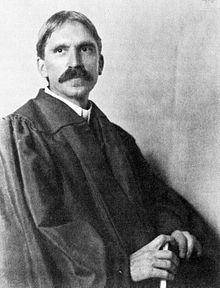 This is the first part of some rambling considerations about presumed consent, which takes off from the recently popularised Welsh initiative. I’m not going to make much reference to the question of elective ventilation, because while it is a related question in many ways, I consider it to be all rather tied up with death. Death, obviously, is a big part of organ donation; but in and of itself I’d rather consider it more fully elsewhere. Nathan Emmerich, however, has written a paper on elective ventilation and death and their tie to organ donation, and it’s rather interesting stuff if you’re of a mind.
This is the first part of some rambling considerations about presumed consent, which takes off from the recently popularised Welsh initiative. I’m not going to make much reference to the question of elective ventilation, because while it is a related question in many ways, I consider it to be all rather tied up with death. Death, obviously, is a big part of organ donation; but in and of itself I’d rather consider it more fully elsewhere. Nathan Emmerich, however, has written a paper on elective ventilation and death and their tie to organ donation, and it’s rather interesting stuff if you’re of a mind.
One of the most internationally recognisable issues in modern biomedical law is the question of organ procurement. No state can claim to have available a surfeit of transplantable organs, and all too often you see a shortfall which results in tragic loss of life. One widely-touted solution to this issue is that of presumed consent- a policy gaining support in many of the nations who do not yet practice it.
In developed nations, and those in which modern medical technology is becoming more widespread, organ shortfall can only become worse as time progresses. Patients in need of transplantation can increasingly be kept alive by techniques such as dialysis, cardiopulmonary bypass, or the use of other extracorporeal devices; but these are hardly permanent solutions. For the patient to leave hospital and regain an increased quality of life, it is necessary for a suitable donor organ to be available and a successful transplantation to take place. Even where this is possible, organs are frequently lost through various forms of immunological rejection or failure, both acute and chronic in nature. For instance, UK statistics published by the National Health Service’s Blood and Transplant Authority (NHSBT) currently hold that 16% of cardiological transplants fail within one year of surgery.
Where they survive, these patients return to the waiting list of hundreds who require an organ, and the supply is effectively reduced for no gain.
While advances in medicine are reducing this particular aspect of the problem- the International Pancreas Transplant Registry reported a fall in failure rates from 38% to 8% for the years 1988 to 2003– it’s still the case that the numbers of patients registered on waiting lists far outstrips the supply. At the time of writing, the US- based United Network for Organ Sharing (UNOS) live trend of candidates lists 112,818 cases, which we might contrast against the 11,720 donors in 2011, according to data available from the US Department of Health.
By my reckoning, this represents a shortfall of some 89.6%, a figure which is illustrative of the scale of the problem at hand. The obvious, if simplistic, solution is to install policies which will lend themselves to increasing the number of registered donors.
States use a variety of approaches in attempts to perform this task. Standard policy in the UK and US at present comprises a pure consent system, also known as ‘opt-in’. Under such a system, anyone who has not expressly given official consent will not be treated as a donor in the event of their death. Consequently, you might be led to think that a pure consent system such as this relies generally on altruism, although there has been debate over the idea of offering some form of incentivisation: for example, Swedish health authorities have recently proposed a system wherein the funeral costs of the deceased would be paid in return for organ supply. However, despite their position that “models in many countries, relying chiefly on altruism, have failed to motivate a sufficient number of donors”, there are divisive ethical questions raised by such a stance. Discussion of the relative merits and demerits of this position is perhaps beyond the scope of this post, intending as I do to focus on a more readily enacted solution, but it is worth noting that a parallel can be drawn to another model- that of the free market.
The Iranian government instituted “a compensated and regulated living-unrelated donor renal transplant program” in 1988 and within ten years completely eliminated their domestic waiting lists for kidneys. In effect,this constitutes legalised trade in human tissues, which, while undeniably successful, once again has severe ethical repercussions. Debate rages in academic and political circles as to whether this constitutes an affront to the oft-abused notion of ‘human dignity’, by virtue of assigning a monetary value to the human body; or alternatively that quite the opposite is true- that “each of us has autonomy over our own body in every aspect of our health and that from this stems the right to donate [organs]”, and to prevent this is itself an offence to one’s dignity. However, as mentioned, I’m going to herein focus on debate over a solution with less immediately obvious issues, both ethical and practical.
The ‘dissent solution’, more commonly referred to as ‘presumed consent’ or an ‘opt-out’ system of choice, is one often promoted in debate over reform of a state’s organ procurement policy. Under such a system, any citizen is considered a consenting donor who has not expressly registered their withdrawal. It is in place in many of the world’s nations as a key part of their domestic health policy: for instance, 24 member states of the European Union currently utilise some form of presumed consent in regulation of donation. The United Kingdom (save, in the possible near future, for Wales) is one of the few European nations to maintain a system of pure consent, wherein one must actively join the Organ Donation Register, but there has been increased debate in recent years regarding a switch to an opt-out legislative regime. A 2008 report by the Organ Donation Taskforce, created in 2006 to study methods by which donor rates could be increased within the currently existing legal framework, was given serious consideration by ministers of health. Many proponents of the proposed solution point to statistics issuing from nations in which it is implemented, one widely utilised example being that of Spain’s relatively high rate of donation- around 34 donors per million of population (pmp), or the rates in other participating European nations which are uniformly higher than those of opt-in states. I’d contrast the Spanish figure with that for the UK in the same year, a value which ranks as one of the lowest in Europe- a meagre 12.3 pmp. Okay, so it’s a simplistic comparison, but it lends strong credence to the notion that a nation should adopt a dissent solution to increase donation rates- indeed, it would appear to address the letter of the problem outright. Due to the fact that it is such an apparently viable system actively used in other nations, and being given serious thought as to its implementation in the UK, presumed consent perhaps warrants a more thorough analysis than policies less likely to be adopted.
One thing to consider is the viewpoint that the aforementioned statistics can be seen as the sole end in any potential legislative change. Without such a projected result, it seems unlikely that any government would consider such a drastic departure from the established norm of their policy- and by instituting such, we can reason that they hope to achieve similar figures. In discussing the shortfall situation in the US, Dubner and Levitt concluded that “To an economist, this is a basic supply-and-demand gap with tragic consequences.”
If you accept this summation then it is logical that any system by which the gap is lessened, regardless of any other concerns, is going to be desirable. As such, I could equate the position with a utilitarian standpoint; wherein the ‘correct’ action is that which results in the greatest gain for the largest number. In order to determine whether this is sufficient grounds on which to disregard any potential ethical shortcomings, which I will appraise further subsequently, I’m going to (very) briefly examine the economic approach through the (abbreviated) views of different normative moral theories.
Deontological ethics hold that the morality of an action is determined in relation to whether that action follows established rules, and Kant suggested that this was embodied by acting from one’s duty. He did, trust me- it’s a long read.
As such, he argued that motive is the most determinant factor in the morality of an action; that to act correctly, one must act “…out of respect for the moral law”. I infer from this that where one intends to do the most good, as in the institution of a dissent system to improve donation rates, one would be morally justified in moving ahead regardless of any foreseeable downsides. Indeed, Frances Kamm more recently argued that providing the harm done is necessary to enact the good which is intended, we would be morally sound in causing harm to some for the greater benefit of others.
Consequently you may surmise that from a deontological standpoint, it would be unreasonable to lend too much influence to detractors of the proposed system.
Consequentialism, too, can be determined to approve such a legislative change on the basis of the figures I have already discussed: utilitarianism is a facet of consequentialist ethics, wherein the morality of actions are seen to be based upon their outcome. By its defining tenet, then, consequentialism necessarily holds that “one cannot be blamed for mistaken judgements” if the outcome either is positive, or is, as in this case, assumed to be so. Given the legal and political context of the investigation we might draw influence from Mohist consequentialism; writing in the 5th century B.C., Mozi “advocated a form of state consequentialism, which sought to maximize three basic goods: the wealth, order, and population of the state“, an aim we might consider organ donation rate increase as a step towards.
However, a different stance is taken by pragmatist theory. Although Dewey held that cultural mores equate to scientific hypotheses which are liable to be changed to reflect the collective experience of those to whom they pertain (and thence I’ll assume that ethical reservations over opt-out donation may cease to apply when it became the norm); I should note that this value is more descriptive than normative. LaFollette claimed that because pragmatists invoke an idea of moralistic evolution, it follows that at any given time their moral judgements must be based on their recent habitual method of such, as opposed to what could develop in future. He suggested that “[moral habits] empower because, in embodying previous learning, they permit us to respond quickly and appropriately in morally serious situations”, which we might take as an interpretation of the theory that countermands the indications of those previously mentioned. In requiring obeisance to concerns conventionally raised, then, pragmatism seems to present a moral need for consideration of issues which are created by attaining the goal of changing donation legislation.
It would appear, then, that the spectrum of moral theory suggests we can’t discount everything but the numerical result of instituting a policy of dissent. While the value-related consequence of such a policy is undoubtedly a large element of the solution, it is appropriate that I attempt to analyse the potential issues raised by detractors of an opt-out regime. Before any more practical problems, it is important to reflect upon a more cerebral matter. In terms of a bio-legal issue such as that I’m discussing, ‘presumed consent’ is a contentious phrase. Although it may at first appear a purely semantic matter, it in fact raises much more fundamental questions which affect the way in which such legislation would function when you attempt to define it.
We might assert a legal presumption to be “maintained for as long as no evidence is provided to disprove it or no valid objection is raised against it”, where to presume is defined as “[to] suppose that something is the case on the basis of probability”. The former statement fits well with the basis of opt-out donation- if an individual doesn’t provide evidence to disprove their consent, ie. by officially registering their objection, then they are held to be approving their inclusion. This conclusion is that used by proponents of such a system, as we may expect; and is supported by the English tort law doctrine of violenti non fit iniuria which roughly translates as ‘to one who consents, no harm is done’.
However, the use of the word probability in the OED definition forces us to question the basis on which consent is assumed: is it correct to declare something is more probable simply because there is no proof to the contrary? You would perhaps treat with skepticism someone who claimed that because of the fact that we had no evidence of a creature, it was a certainty that it existed. In effect, by presuming consent to exist wheresoever there might be a lack of proof of it not existing, we posit a similar situation.
Consequently, I’d suggest that a major problem raised by the institution of a dissent solution in legislation is the determination of consent. In an opt-in system, where I’ll will assume arguendo that there is no incentive offered (such as is presently the case in the UK), one necessarily permits their inclusion actively- through an act of pure altruism. It would be difficult to imagine the construction of an argument which claimed that this did not constitute consent; indeed, the approach has been termed by academics as “explicit consent”. As I have discussed, the same generalisation can’t be applied to an opt-out scenario although it would logically follow that this would be the case. As such, who can we safely presume to have consented by failing to dissent? The debate over consent is itself a widely discussed topic in the fields of bioethics and of medical law, often in the context of the obtaining of informed consent to avoid the potentiality of accusations of negligence should a procedure have negative side effects. Although negligence cases are unlikely in the instance of cadaveric organ retrieval, it is conceivable that they may apply where consent is unclear in the event of neurological death.
Given this parallel, I might suggest that any opt-out policy would have to legislate for every circumstance wherein a person is unable to express their consent. Much as we might provide for consent for research, or for a procedure, capacity becomes of paramount importance. While this post isn’t really an appropriate forum for debate over such a topic, I’d note that this adds considerably to the scope of legislation attached to an overhaul of the donation framework. Areas such as mental incompetence, the rights of a child under the age of majority, and the institution of a uniform standard of information provision would all have to be addressed; and there is potential risk of either overlap or conflict with the Mental Capacity Act 2005.
The question of the ability to consent warrants elaboration. While rulings have held that if a child possesses “sufficient understanding and intelligence to enable him or her to understand fully what is proposed” then they are capable of consent; I must note that Gillick, and other cases, have dealt only with permission for procedures which would ostensibly occur during and intend to prolong life. The asking of a child for a decision on a postmortem event is an ethical mire that could be avoided by not applying dissent laws to those below majority age, but I’d think it was clear that children themselves comprise a significant percentage of transplant waiting lists. Furthermore I think I’m being reasonable in suggesting that it may be difficult, if not impossible, to gauge the comprehension of a child as regards the science behind the relationship between their organs and life- a critic might point out that one undergoes mandatory education in biology until at least the age of 16.
However, if it is enshrined in law that a child is not able to consent to such a procedure, it is a pertinent question to ask where the paediatric organ supply will come from. If the responsibility of consent is given to parents, the potential for a change in opinion upon reaching majority must be considered, as I will discuss in Part Two of this article (which will be published soon, I promise).
The question of competence- applicable to both adults and as a further level of complexity with children- presents various similar dilemmas. Once again the issue of proxy can be raised- rulings such as the Canadian E (Mrs.) v Eve suggest that “these powers [of proxy decision-making] could be exercised only in the best interests of the incompetent person, no matter what the position of society or next-of-kin”, which I would compare to my comments regarding Gillick in that it necessarily only refers to situations wherein the subject is alive. Furthermore, it is an argument that we may struggle to make to say that the fate of one’s cadaveric remains have bearing on one’s best interests in life, outside of religious consideration.
Interests in this sense are defined as being “for the benefit of” the subject, which is irreconcilable in the context of either neurological or cardiac death. Consequently, the lack of precedent makes it fundamentally unclear as to who should be given legal permission to consent for another person. I’d also consider the fact that it is unclear as to whether the failure of a proxy to define a decision- as is the basis of normal opt-out policy- for the subject would actually constitute an election of consent for that person. This latter question hinges on the idea that, should we assume the proxy to possess a ‘power of attorney’ equivalent jurisdiction, their lack of explicit action to confer dissent for their charge carries the same meaning as the same lack of action would on their own behalf. It would be easy to imagine scenarios in which this protocol would result in action by medical personnel, only to be later challenged; which is one problem that the dissent solution purports to avoid.
In the second part of this post, I’m going to wax lyrical about the legislative position on presumed consent, and how a failure to act, a denial of consent, and the familial veto problem would reflect on a presumed consent policy’s respect for autonomy. Spoiler- it’s a sticky question.






One Response to “In Depth: Presuming Consent in Organ Donation, Parte the Firste”